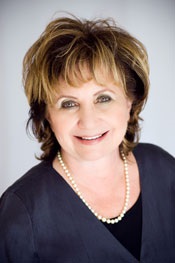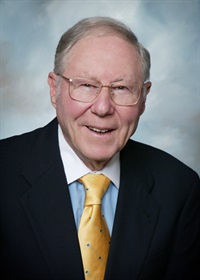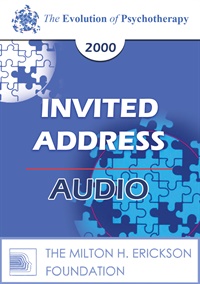EP00 Invited Address 4a - Family Injustice and Social Action Therapy - Cloe Madanes, Lic. Psychol.
- Average Rating:
- Not yet rated
- Topic Areas:
- Family Therapy | Invited Addresses | Cultural and Social Contexts
- Categories:
- Evolution of Psychotherapy | Evolution of Psychotherapy 2000 | Pioneers in Couples and Family Therapy
- Faculty:
- Cloe Madanes, HDL, LIC | William Glasser, MD
- Duration:
- 1 Hour 28 Minutes
- Format:
- Audio Only
- Original Program Date:
- May 26, 2000
- License:
- Never Expires.
Description
Description: Focuses on a family therapy approach that addresses violence and injustice through real-life interactions and systemic involvement. Emphasizes a 15-step method for healing spiritual pain, with a high success rate in treating juvenile sex offenders. Highlights the importance of engaging the whole family, including elders, to create lasting change and accountability. Introduction by Christine Padesky. William Glasser participates in conversation.
Syllabus Description: Ms. Madanes will present a new way of thinking about how injustice in the family can lead to marital and family problems. She will present step by step procedures for discovering an injustice in the family and resolving it effectively so as to solve major problems, violence and depression, panic, child and adolescent problems and sexual abuse.
Educational Objectives:
- To describe how marital problems are related to family issues and why to engage the social network in therapy.
- To describe how to use effective brief therapy techniques and rituals in therapy.
*Sessions may be edited for content and to preserve confidentiality*
Credits
Handouts
| Timestamped Transcript (988.8 KB) | 24 Pages | Available after Purchase |
| Ericksonian Learning Snapshot (275 KB) | 3 Pages | Available after Purchase |
Faculty

Cloe Madanes, HDL, LIC Related Seminars and Products
Cloé Madanes, HDL, LIC, is a world-renowned innovator and teacher of family and strategic therapy and one of the originators of the strategic approach to family therapy. She has authored seven books that are classics in the field: Strategic Family Therapy; Behind the One-Way Mirror; Sex, Love and Violence; The Violence of Men; The Secret Meaning of Money; The Therapist as Humanist, Social Activist and Systemic Thinker; and Relationship Breakthrough. She has presented her work at professional conferences all over the world and has given keynote addresses for The Evolution of Psychotherapy Conference, the American Association of Marriage and Family Therapy; the National Association of Social Workers, The Erickson Foundation, the California Psychological Association and many other national and international conferences. Madanes has won several awards for distinguished contribution to psychology and has counseled outstanding individuals from all walks of life.

William Glasser, MD Related Seminars and Products
William Glasser, MD, who received his MD degress in 1953 from Case Western Reserve University was an American psychiatrist. William was awarded an honorary doctorate in human letters by the University of San Francisco. Founder and Director of the Institute for Reality Therapy, he was authoer and editor of ten books on the topics of reality therapy and education. He was also the developer of Choice Theory. His ideas, which focus on personal choice, personal responsibility and personal transformation, are considered controversial by mainstream psychiatrists, who focus instead on classifying psychiatric syndromes as "illnesses", and who often prescribe psychotropic medications to treat mental disorders.


